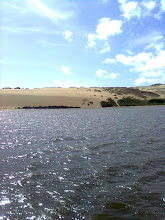
By Andrew O'Hehir
In his sober, searing and even cynical little book "Disgrace," J.M. Coetzee tells us something we all suspect and fear -- that political change can do almost nothing to eliminate human misery.
In his sober, searing and even cynical little book "Disgrace," J.M. Coetzee tells us something we all suspect and fear -- that political change can do almost nothing to eliminate human misery.
...
A middle-aged, divorced scholar of Romantic poetry, David would have undoubtedly been a pathetic figure under the old regime -- one imagines an ineffectual white liberal teaching Wordsworth to bored Afrikaners while largely ignoring the atrocities perpetrated in his name. But in the Mandela era, David has become a victim of "the great rationalization": His university has been remade into a technical college, and he teaches courses in "communication skills" that he finds nonsensical. He is such a nonentity that the prostitute he patronizes weekly -- and for whom he has begun buying gifts -- stops receiving him. He imagines her and her colleagues shuddering over him "as one shudders at a cockroach in a washbasin in the middle of the night" and wonders if he can ask his doctor to castrate him as one neuters a domestic animal.
This is the first of the many comparisons of human and animal existence in "Disgrace." Coetzee has always situated his characters in extreme situations that compel them to explore what it means to be human, and before this novel is over, David must endure both psychological abasement and physical torment. But Coetzee has never before asked so clearly what it is not to be human. Later in the novel, after David has fallen into disgrace and fled Cape Town for his daughter Lucy's remote farm, she tells him, "This is the only life there is. Which we share with animals."
http://www.salon.com/books/review/1999/11/05/coetzee/
This is the first of the many comparisons of human and animal existence in "Disgrace." Coetzee has always situated his characters in extreme situations that compel them to explore what it means to be human, and before this novel is over, David must endure both psychological abasement and physical torment. But Coetzee has never before asked so clearly what it is not to be human. Later in the novel, after David has fallen into disgrace and fled Cape Town for his daughter Lucy's remote farm, she tells him, "This is the only life there is. Which we share with animals."
http://www.salon.com/books/review/1999/11/05/coetzee/


Komentarų nėra:
Rašyti komentarą